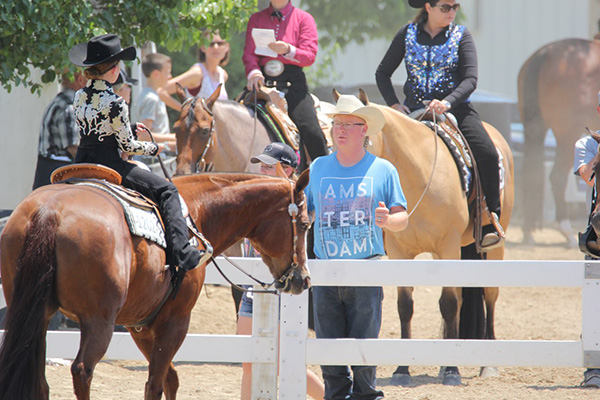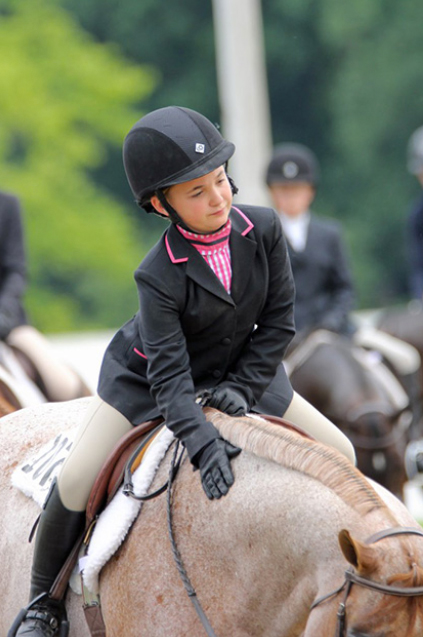Have You Thanked Your Horse Trainer Lately?
EC Blog By: Kory Kumar
I have learned that my horse trainer is extremely more valuable than I ever realized before. She is, in fact, a super hero of sorts! I can’t think of another profession that requires a person to wear so many different hats, or to fill so many different roles. This 2018 reflection is dedicated to Tammie Whitt, who is not only my trainer, but who is also one of my very best friends, and whom I don’t know what I would do without!
It takes so many different people, filling many different roles, in order to have a successful horse show. Success is, and looks different, for every person at the event. Horse trainers belong to a group of people, who I feel aren’t given the credit and sometimes the respect that they’re deserving. Their efforts may go unnoticed in large, but they are, by far and away, a very significant and important part of the success of any show.
Trainers bring people to events. Simple, plain, and true! If they did nothing else, they should be respected for that fact. They bring exhibitors, they fill classes, and they provide money to regional clubs.
A horse trainer’s job is very difficult. It’s not just about riding our horses, or their own horses. Ask any trainer and he or she will tell you that the horses are the easy part. It is us, the clients, who make things complicated. Sometimes, otherwise successful and competent people somehow develop situational, special needs. Our trainers must then organize and plan for us, while simultaneously prepping our horses, riding, and preparing to show themselves. Also, when you factor in that the majority of the horse show industry is comprised of women, the crazy bar rises again, because, let’s face it; that’s a whole lot of emotional baggage.
I’ve learned a great many things over the years- simply by sitting back and observing and also by being my normal social self who’s willing to talk to anyone at any time. Exhibitors aren’t always nice to trainers. Exhibitors don’t always heed the advice they’re paying a trainer to give them, myself included. Exhibitors blame trainers and sometimes demonstrate toddler-like behavior toward their trainer. Exhibitors can cause trainers to feel intense pride and validation when things come together. Exhibitors can show others the value and quality in a trainer’s program. In short, any single exhibitor can make or break a trainer. It’s all in how they act and present themselves.
So, what have I learned about myself? I’ve learned that I’m good at un-training my horse. I’ve learned that keeping my horse in a year round, full-time training program works best for me, plus my horse and trainer appreciate the consistency. I’ve learned the value in guided practices, which are lessons that should be routine and focused on specific skills. I’ve learned that if I’m unable to maintain a lesson schedule, the less I ride unsupervised the better off my horse and I are. It sounds strange, and it took me YEARS to understand, but if I can’t maintain the needed structure, not riding is a better option than riding alone.
I’ve learned that I NEED Tammie at shows, and I NEED her at home. I know what my horse is supposed to look like, but not how to make it happen. I need her eyes on the ground. I’ve learned that just because I’ve been riding for most of my life, that doesn’t mean I’m competent in my solo abilities to ride in multiple classes. I can’t fake it in Trail, Horsemanship, or Western Pleasure. I’ve also learned that other people watch me and watch how I interact with my trainer. I’ve recently learned that my behavior can reflect on how others see her. Finally, I’ve learned that open communication with my trainer is always the best policy.
So, here it is in a nutshell. Trainers work hard so that we, the exhibitors, can be successful. They sacrifice sleep and often food in order to help us reach our goals, both at home and at shows. They feel the same sense of pride that we do when things go well.
It’s awesome when clients and trainers are friends; but, in reality, your trainer isn’t there to be your friend. Trainers are hired because exhibitors WANT to be in the program. By working with a chosen trainer, you’re agreeing to follow the rules and expectations they have for all clients. You’re signing on to be a productive and collaborative member of a team and to work toward mutually beneficial goals for the year’s success!
Do you have something to say about a topic in the horse industry? Email B.Bevis@EquineChronicle.com and you blog post may be highlighted on EquineChronicle.com.












